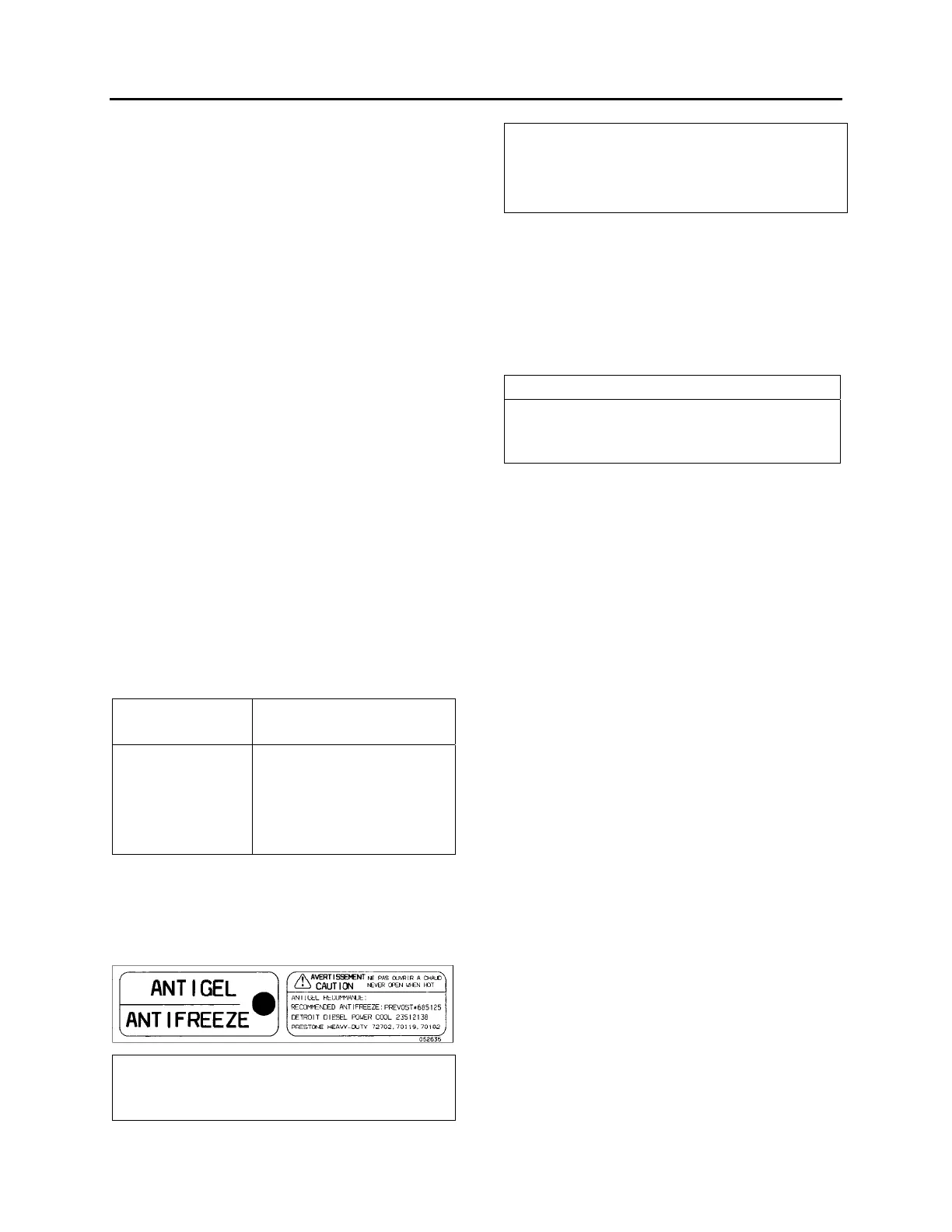Section 05: COOLING SYSTEM
PA1562
9
The coolant provides a medium for heat transfer
and controls the internal temperature of the
engine during operation. In an engine having
proper coolant flow, some of the combustion
heat is conveyed through the cylinder walls and
the cylinder head into the coolant. Without
adequate coolant, normal heat transfer cannot
take place within the engine, and engine
temperature rapidly rises. Coolant must
therefore be carefully selected and properly
maintained.
Select and maintain coolant in order to meet the
following basic requirements:
• Provide for adequate heat transfer.
• Provide protection from cavitation damage.
• Provide a corrosion and erosion resistant
environment within the cooling system.
• Prevent formation of scale or sludge
deposits in the cooling system.
• Be compatible with the cooling system hose
and seal materials.
• Provide adequate freeze protection during
cold weather operation.
When freeze protection is required, a mixture of
suitable water and antifreeze containing
adequate inhibitors will provide a satisfactory
coolant fluid.
Freeze protection
down to:
percentage of antifreeze in
mixture
-13°F (-25°C)
-22°F (-30°C)
-36°F (-385°C)
-51°F (-46°C)
40%
46%
54%
60%
5.5 COOLANT RECOMMENDATIONS FOR
DETROIT DIESEL SERIES 60 ENGINE
A decal (052635) located on the surge tank
provides information on recommended coolants.
05104
Recommended phosphate free coolants for
Detroit Diesel Series 60 engine:
• Prevost #685125;
• Detroit Diesel “DDC Power Cool” (P/N
23512138);
• Prestone AF977 (bulk), 72702 (3.78 L),
70119 (205L), 70102 (4L).
Combining suitable water with reliable inhibitors
satisfies the first five requirements. When freeze
protection is required, a solution of suitable
water and antifreeze containing adequate
inhibitors will provide a satisfactory coolant fluid.
Ethylene glycol-based antifreeze is
recommended for use in Series 60 engines. The
cooling system capacity is 24 US gal (91 liters).
NOTE
In general, antifreeze does not contain
adequate inhibitors. For this reason,
supplemental coolant additives are required.
For a complete overview of engine coolants
used with Detroit Diesel Engines, refer to
"Coolant Selections" For Engine Cooling
Systems Guide at the end of this section
(#7se298).
1. Always use recommended antifreeze,
inhibitor and water at proper concentration
levels. A 50% coolant/water solution is
normally used as factory fill. Antifreeze
concentration over 70% is not recommended
because of poor heat transfer capability,
adverse freeze protection and silicate
dropout. Antifreeze concentration below 30%
offers little freeze, boilover or corrosion
protection.
2. Use only ethylene glycol antifreeze meeting
the Detroit Diesel #7se298 or TMC RP-329
“Type A” formulation.
3. Use an antifreeze solution year-round for
freeze and boil-over protection. Seasonal
changing of coolant from an antifreeze
solution to an inhibitor/water solution is
recommended.
4. Pre-mix coolant makeup solutions at proper
concentrations before adding to the cooling
system.
5. Maintain the prescribed inhibitor strength
levels as required.
6. Do not mix different base inhibitor packages.
7. Always maintain proper coolant level.

